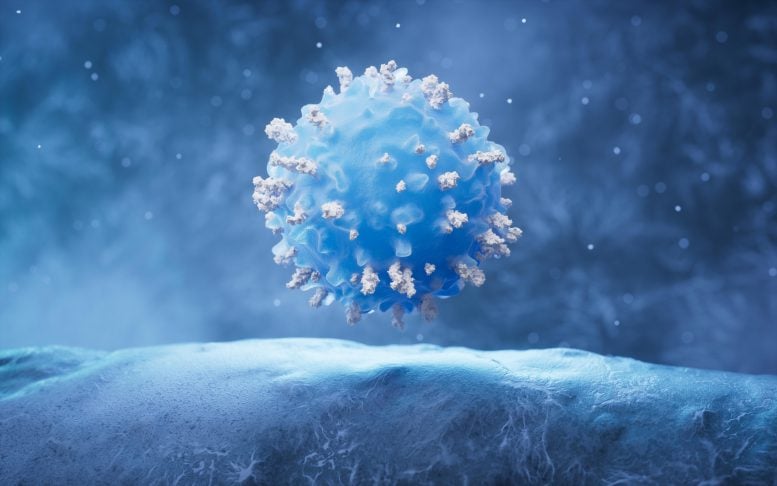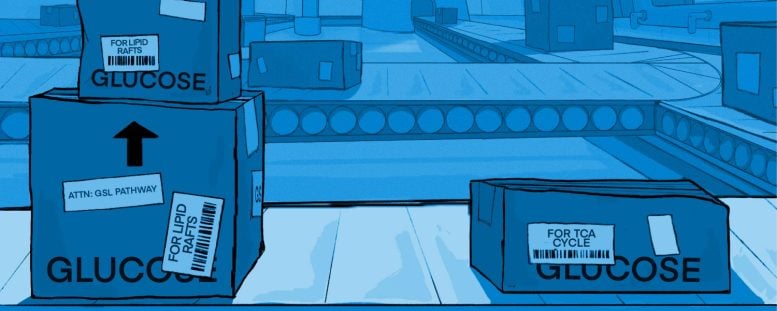
Glucose drives T cell signaling. Stronger signals mean better cancer defense.
For the body’s disease-fighting T cells, glucose is much more than just a simple sugar rush.

Scientists at the Van Andel Institute have uncovered that glucose, a critical fuel source for immune cells, also plays a key role in T cell communication and enhances their tumor-fighting abilities. This insight could help refine how T cells are used to battle cancer and other illnesses.
The research is detailed in a study published in Cell Metabolism.
Why T cells need glucose
“Immune cells are highly influenced by their environment,” said Joseph Longo, Ph.D., the study’s first author and a postdoctoral fellow in the lab of Russell Jones, Ph.D. “We knew that T cells need access to glucose to function, but we didn’t know exactly why. It was previously thought that T cells mainly break down glucose for energy, but our new work shows that T cells use glucose as a building block for other molecules that are necessary to support T cells’ anti-cancer properties.”

Glucose fuels glycosphingolipid production

The findings reveal that T cells allocate significant portions of glucose to build large molecules called glycosphingolipids (GSLs). These sugar-fat compounds are essential for T cell growth and making proteins that T cells use to combat cancer.
GSLs help form fat-rich structures on T cell surfaces called lipid rafts, which bring together cell signaling proteins that instruct the T cell to kill cancer cells. Without GSLs, these signals are weaker, making T cells less effective at destroying tumors.
Reference: “Glucose-dependent glycosphingolipid biosynthesis fuels CD8+ T cell function and tumor control” by Joseph Longo, Lisa M. DeCamp, Brandon M. Oswald, Robert Teis, Alfredo Reyes-Oliveras, Michael S. Dahabieh, Abigail E. Ellis, Michael P. Vincent, Hannah Damico, Kristin L. Gallik, Nicole M. Foy, Shelby E. Compton, Colt D. Capan, Kelsey S. Williams, Corinne R. Esquibel, Zachary B. Madaj, Hyoungjoo Lee, Dominic G. Roy, Connie M. Krawczyk, Brian B. Haab and Russell G. Jones, 5 August 2025, Cell Metabolism.
DOI: 10.1016/j.cmet.2025.07.006
Research reported in this publication was supported by the National Institute of Allergy and Infectious Diseases of the Join the SciTechDaily newsletter.
Full article can be found at: https://scitechdaily.com/could-glucose-be-the-key-to-next-generation-cancer-treatments/







